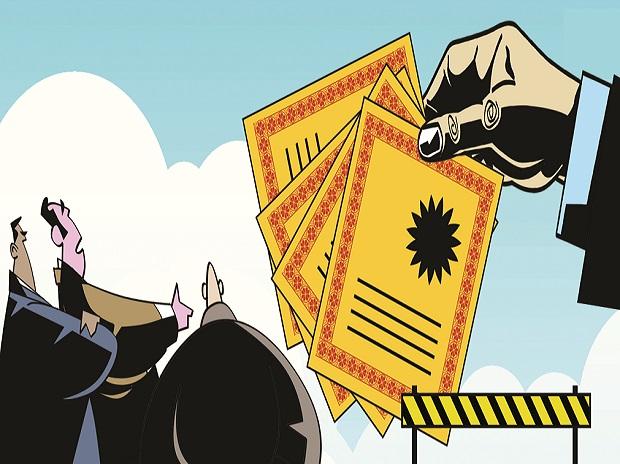The Reserve Bank of India (RBI) on Friday refused to sell the benchmark 10-year bonds in its auction, and also decided not to devolve the securities on the primary dealers, rapidly cooling off yields in the market.
The 10-year bond yields had risen on Thursday after the RBI’s G-Sec purchase of Rs 25,000 crore. In that auction, the RBI had also bought Rs 7,500 crore of 10-year bonds.
However, after the G-SAP, the 10-year bond yields had shot up from 6.01 per cent to 6.13 per cent. It was suspected that primary dealers — underwriters of government securities — had shorted the 10-year bonds in order to cover it on Friday’s auction.
Short selling involves borrowing a security and selling it in the market, hoping to buy it back at a lower price later.
Bond dealers say by refusing to sell the bonds, or even devolve, the RBI essentially put the short-sellers in a quandary.
“Now, they will have to cover the position from their existing stock, which would mean booking losses,” said a bond dealer.
This RBI move rapidly cooled off the bond yields in the market. The 10-year bond yield closed at 6.088 per cent, down 4 basis points from its previous close of 6.127 per cent. In intraday trades, the yields had jumped to 6.176 per cent before the auction as the markets were testing the nerves of the RBI.
But the move caught many of them, especially the primary dealers, unawares. This is particularly because the RBI had already paid them underwriting fee for the bonds, and they were confident that the securities would be devolved on them if the RBI did not want to sell to the market.
On Friday, the RBI had planned to auction Rs 26,000 crore of bonds. But it ended up selling only about Rs 11,327 crore.
 Dear Reader,
Dear Reader,
Business Standard has always strived hard to provide up-to-date information and commentary on developments that are of interest to you and have wider political and economic implications for the country and the world. Your encouragement and constant feedback on how to improve our offering have only made our resolve and commitment to these ideals stronger. Even during these difficult times arising out of Covid-19, we continue to remain committed to keeping you informed and updated with credible news, authoritative views and incisive commentary on topical issues of relevance.
We, however, have a request.
As we battle the economic impact of the pandemic, we need your support even more, so that we can continue to offer you more quality content. Our subscription model has seen an encouraging response from many of you, who have subscribed to our online content. More subscription to our online content can only help us achieve the goals of offering you even better and more relevant content. We believe in free, fair and credible journalism. Your support through more subscriptions can help us practise the journalism to which we are committed.
Support quality journalism and subscribe to Business Standard.
Digital Editor

RECOMMENDED FOR YOU